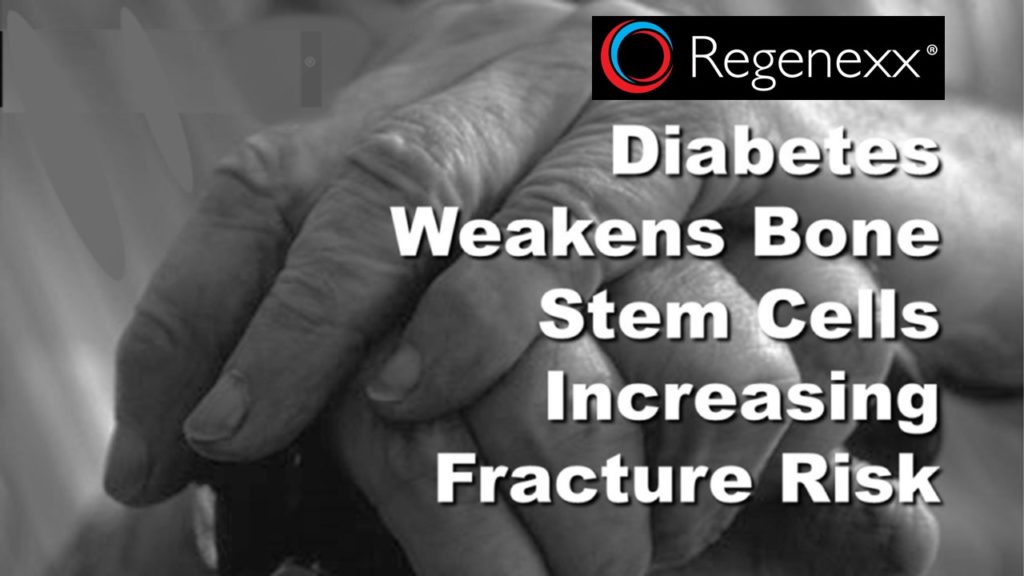Diabetes Weakens Bone Stem Cells…
Blood sugar has become the “new black” in our understanding of how the human body functions. While the impact of cholesterol levels was hugely exaggerated and resulted in a Pharma controlled-cholesterol – statin empire, though previously under estimated, the pervasive impact of blood sugar on multiple body systems has finally become the subject of many studies. This morning’s study looks into the bone’s ability to heal in the presence of poor blood sugar control (i.e the average American who consumes far too much sugar) and sheds light on whether or not Diabetes weakens bone stem cells.
When a bone breaks, it begins an elaborate choreographed series of events. First, an amazing multifunctional type of blood clot called a fracture hematoma (a clot made from bone marrow) is formed to keep the broken edges of the bone together. This same clot deliberately causes the broken edges of the bone to die and the bone death signals the troops to come in to clean the place up. Enter the stem cells that live right in the marrow clot which orchestrate the repair like a general contractor; Osteoclasts remove the dead bone, Fibroblasts add collagen to form a callus, chondrocytes toughen the callus with fibrocartilage and finally the Osteoblasts arrive on the scene to produce new bone. Recent studies have shown that fractures are over represented in the diabetic population. Is there a direct connection?
To explore these questions the study used mice with high blood sugar and mice without high blood sugar as controls. The mice were exposed to specific physical stress for 3 minutes a day for 5 days. What they found was that crucial Osteocyte signaling and the ability to remove dead bone were both impaired in the Diabetic Mice. The conclusion was that Hyperglycemia adversely affects both the oseteoblasts and mesenchymal stem cells in bone, lessening the bones’ ability to handle physical stress and heal.
The upshot? 1 out of every 6 hip fracture patients die within the first year post fracture, making fractures a life threatening issue. Understanding the link between diabetes and bone fracture is critical, given that many older Americans end up as type 2 diabetics, all of which is preventable. While this study focused on Type 1 Diabetes, other studies have shown that metabolic syndrome affects bone health and healing. So pass the doughnut shop and go out for a brisk walk or jog instead – you and your bones will both feel better in the long run!

If you have questions or comments about this blog post, please email us at [email protected]
NOTE: This blog post provides general information to help the reader better understand regenerative medicine, musculoskeletal health, and related subjects. All content provided in this blog, website, or any linked materials, including text, graphics, images, patient profiles, outcomes, and information, are not intended and should not be considered or used as a substitute for medical advice, diagnosis, or treatment. Please always consult with a professional and certified healthcare provider to discuss if a treatment is right for you.
